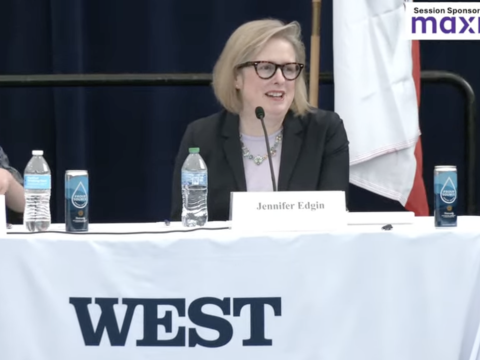Putin May Find Prigozhin More Dangerous Than Zelensky
As analysts find the battlefield more transparent thanks to open-source intelligence, Russia and its ongoing political turmoil make the country complicated, opaque and dangerous.
Even though the dust has settled after the Wagner Group’s mutiny, questions still loom around why its leader, Yevgeny Prigozhin, is assumed to be alive and in Moscow despite being labeled a traitor by Russian leader Vladimir Putin.
“Prigozhin is a canary in a coal mine,” said Daniel Hoffman, a retired senior CIA officer who specialized in Russia. The mercenary’s criticism of top Kremlin leadership posted online may have resonated with commanders, soldiers and members of the Russian elite challenging Putin’s authority.
“I think that Vladimir Putin wants to demonstrate that he's still very much in control, even though he's not, so he's going to rely on his closest advisors … Vladimir Putin values loyalty over competence,” Hoffman said at AFCEA’s 2023 Intelligence and National Security Summit in National Harbor, Maryland.
The former agent was posted in Russia and Eastern Europe and spoke on Thursday at the panel, Russia and Ukraine War: Insights and Analysis.
While high-level strategy and politics have become less predictable to the U.S. intelligence community, the battlefield has become more visible via social media and commercial space images.
“Especially at the tactical level is where you can get the most of open sourcing,” said Gian Luca Capovin, team manager at Janes, specializing in open-source intelligence, or OSINT.
Declining fortunes now visible on the battlefield as Ukraine goes on the offensive spark Hoffman to foresee a vicious cycle in the ongoing war, where military losses for Russia will translate as a deeper commitment to the failed campaign, and headwinds for the Kremlin will reinforce the regime’s determination to keep investing in changing its fortunes. This gambler’s dynamic could only be broken by a total Ukrainian victory on the battlefield, according to experts on the panel.
"Progizhin is a canary in a coal mine," said retired CIA officer Daniel Hoffman at #intelsummit23 as he explained that his grievances for staging a mutiny may be widely shared among officers and other members of the Russian elite. pic.twitter.com/9sKZCMDQTz
— Diego Laje, MJ (@dlaje) July 13, 2023
Meanwhile, Capovin sees Ukrainian military progress severely hampered by Russia’s effective use of mines to delay or stop attacks, as well as visible changes in tactics. Target acquisition and execution have become more efficient, making those armed forces a more effective fighting machine since the beginning of the year.
Despite many information, surveillance and reconnaissance improvements by the Russians, Capovin was surprised by how the country’s logistics networks function.
“The Russian rear is a mess, but it’s sort of a functioning mess,” Capovin said. “They developed a way to sustain the fighter, to replenish the losses, that to a degree, will allow them to continue with a degree of effectiveness.”
The panel was moderated by Cynthia Rapp, former senior national intelligence executive at the CIA. Also part of the panel were Eric Green, nonresident scholar for the Carnegie Endowment for International Peace, as well as Evelyn Farkas, executive director at the McCain Institute.




Comments